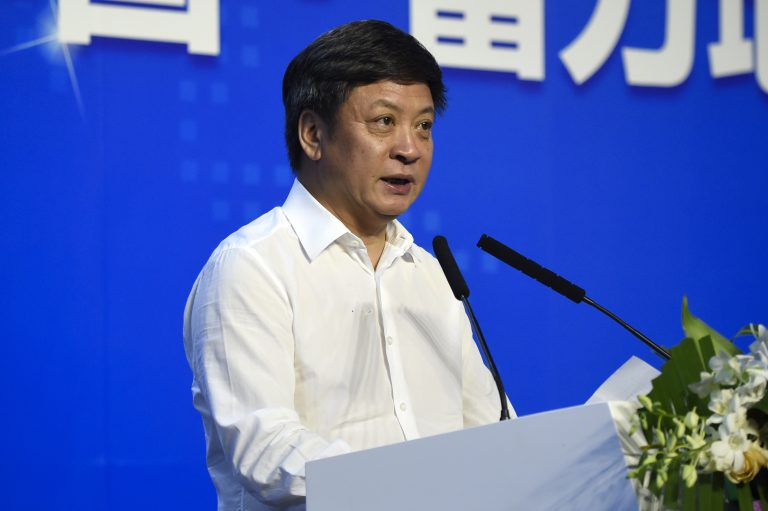According to court documents reviewed by Reuters, yet another Chinese real estate developer has filed for Chapter 15 protection from creditors in a New York court.
Sunac China Holdings is seeking protection under Chapter 15 of the U.S. bankruptcy code, which will shield the company from creditors and lawsuits and allow it to restructure its debt.
“Creditors of Sunac China Holdings approved its $9 billion offshore debt restructuring plan on Monday (Sept. 18), marking the first approval of such debt overhaul by a major Chinese property developer,” Reuters reported.
Sunac’s petition for Chapter 15 was filed with the U.S. Bankruptcy Court for the Southern District of New York.
This is the second Chinese developer to seek bankruptcy protection in recent weeks, after Evergrande, China’s second largest developer, made a similar filing after reporting losses of $81 billion over the past two years.
Success
You are now signed up for our newsletter
Success
Check your email to complete sign up
Sunac, once China’s third largest developer, managed to receive approval from some 2,000 creditors to restructure nearly $10 billion in debt and interest payments owed to creditors outside of China, making it the first Chinese developer to gain such an approval.
“The company’s ability to strike a deal with overseas creditors might provide a blueprint for other distressed developers to regain their footing,” the Business Times wrote.
READ MORE:
- From Evergrande to Country Garden: How China’s Property Titans Mirror Broader Economic Woes
- Police Detain Evergrande Wealth Management Staff in LAtest Blow to Embattled Developer
- Evergrande’s Hengda Real Estate Group Under Probe for Allegedly Breaking Information Rules
Evergrande a different situation
Sunac’s success is something that Evergrande is seeking, however is running into a number of hurdles due to their terms being less favorable than Sunac’s making the negotiation process much more difficult.
According to Business Times, Sandra Chow, co-head of Asia Pacific research at CreditSights said, “While Evergrande is still struggling to get their offshore creditors on board, Sunac has really overtaken them.”
News of Sunac’s success was not reflected in their share price which dropped 4.3 percent in Hong Kong following the news.
The company is buckling under a cash flow problem, compounded by a sales slump that has gripped most of China.
Sunac has liabilities totaling around 1 trillion yuan or approximately US$137.6 billion, a figure that dwarfs the annual Gross Domestic Product (GDP) of countries like Slovakia, Ecuador and the Dominican Republic.
READ MORE:
- Data Shows Massive Decline in US-China Trade
- US Officials Highlight Depth of China’s Economic Crisis
- Proposed CCP Policy Threatens Rare Bright Spot in China’s Economy
China’s economy buckling
Sunac’s latest filing is yet another signal that China’s economy is buckling following three years of strict COVID-19 measures and new rules placed on the country’s real estate industry that were implemented by the Chinese Communist Party (CCP).
China’s real estate industry as a whole is struggling, with high vacancies in major urban areas like Shanghai and a number of unfinished properties, in numerous cities, that have left home buyers paying mortgages on properties that were never delivered.
In addition, CCP authorities have admitted that the youth unemployment rate in the country has soared past 20 percent.
Making matters worse, companies appear to be fleeing China, resulting in a number of factories closing, driving up the country’s overall unemployment rate.
Trade between China and the U.S. has also declined significantly.
“Supply chain shocks that hit the global economy during the CCP’s three years of paralyzing ‘zero-COVID’ lockdowns, coupled with increasing restrictions by the U.S. authorities on exports of high-tech semiconductors and other goods to China — which Chinese manufacturers often rely on to assemble consumer and industrial products for export — have encouraged international firms to reduce their reliance on China,” Vision Times previously reported.
Adam Slater, lead economist for Oxford Economics in London, recently told the Washington Post, “The behavior of the governments toward each other — the more hostile, confrontational stance — is starting to affect private-sector decision-making because it changes the risk profile,” adding that, “What we’re seeing from the U.S. decoupling seems set to continue.”














